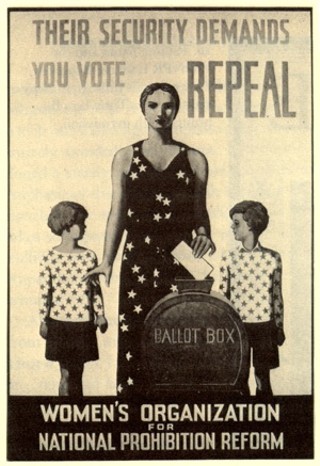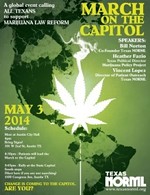Cops Say Legalize It
New report from drug-reform cops with the group Law Enforcement Against Prohibition says the time is right to legalize -- and regulate -- drugs
By Jordan Smith, 5:19PM, Tue. Dec. 2, 2008

Seventy-five years ago this week alcohol prohibition officially ended when the 18th Amendment was finally repealed on Dec. 5, 1933. The 14-year experiment was, by most accounts, a dismal failure. Deaths related to alcoholism and poisoning -- from unregulated "bathtub gin" experiments -- increased astronomically, the courts bogged down with alcohol-related offenses to adjudicate, and the black market exploded, leading to widespread corruption, violence -- and a loss of millions of dollars for the U.S. economy.
Sound familiar?
Celebrating the 75th anniversary of repeal, in April, Tom Shipley, Budweiser brands director reflected on prohibition for the online Beer Advocate: "National Prohibition significantly altered the course of American brewing history and negatively impacted the greater American society. It's repeal 75 years ago -- putting thousands of Americans back to work and infusing millions into the economy -- rightfully should be celebrated...."
There is little doubt that alcohol prohibition was an experiment not worth repeating -- still, the conceit of U.S. policy is that drug prohibition nonetheless remains viable. But that's simply not the case, say drug-law reformers with Law Enforcement Against Prohibition, which today released a new report, calling for an end to the War on Drugs and making specific recommendations for government officials to do so. "Whenever we attempt to confront our very real drug problems with the brute force of prohibition, we make little progress," reads the LEAP report, compiled in conjunction with the Criminal Justice Policy Foundation. "The few who have been helped are greatly exceeded by the millions who have been hurt, all while precious resources and opportunities are squandered in the process."
The LEAP/CJPC report recommends that Congress "empanel a blue ribbon commission" to conduct a "true accounting of all costs to our nation stemming from...prohibition" -- including not only the direct costs, such as those related to law enforcement and incarceration, but also the indict costs such as "lost wages, thwarted community economic development, lost educational opportunities and specific impacts on targeted economic sectors." The groups recommend greater support for harm-reduction strategies, such as repealing mandatory minimum sentencing and legalizing needle exchange. "However, until prohibition is repealed and drugs are legalized so they can be effectively regulated, we will have illegal drug money fueling gangs, cartels and terrorists; a deep hole in our public budgets; millions of Americans with criminal records removed from the productive arenas of education and the workplace; lack of respect for the rule of law; vulnerable people afraid to seek help for their addictions...the list is almost endless," reads the report.
Indeed, in a paper released this month by Harvard economist Jeffrey Miron concludes that legalizing drugs would also have a major economic impact -- no small change, especially during toughening economic times. According to Miron, legalizing drugs would save approximately $44.1 billion each year for federal, state and local government. And legalization would yield a tax revenue of $32.7 billion annually -- including $6.7 billion each year from the legalization of marijuana. While deciding whether drug legalization "is a desirable policy depends on many factors other than the budgetary impacts," he writes, "[r]ational debate about drug policy should nevertheless consider these budgetary effects."
Got something to say on the subject? Send a letter to the editor.
A note to readers: Bold and uncensored, The Austin Chronicle has been Austin’s independent news source for over 40 years, expressing the community’s political and environmental concerns and supporting its active cultural scene. Now more than ever, we need your support to continue supplying Austin with independent, free press. If real news is important to you, please consider making a donation of $5, $10 or whatever you can afford, to help keep our journalism on stands.
Jordan Smith, May 1, 2014
Jordan Smith, April 25, 2014
May 24, 2021
Kevin Curtin, April 20, 2021
May 22, 2014
Drug War, Marijuana, LEAP, CJPF, War on Drugs, drug legalization












